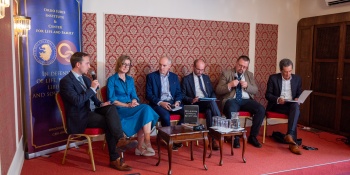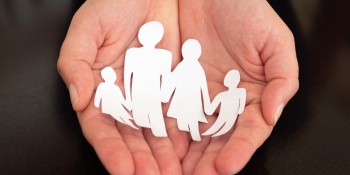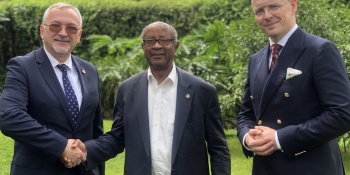Published: 19.05.2020

In many countries, the development of the welfare state has not only responded to the problems of groups requiring support, but also unexpectedly created new challenges for the proper functioning of society. This situation is also the result of distant changes in economic relations and related lifestyle changes in the societies of most countries of the world.
First, urbanization and industrialization resulted in the reconstruction of a traditional three-generation family model. Migrations to cities were associated with leaving the oldest members of the family – mostly people in the working age were migrating. From such an atomized society a nuclear family emerged – consisting of two working adults and children born in the city. Due to much worse housing conditions and the gradual becoming of such a family form a cultural norm, the next generations also lived in nuclear families – seniors separately from working age people and children.
Then economic realities, forcing women to work, and not just leaving the right to work it in the sphere of individual choice, caused a weakening of fertility and further reduction of intergenerational contacts and contacts between generations.
European countries, where this process have started, respond to the needs of such a rebuilt society with various forms of institutional assistance – people whose work does not allow daily care for their offspring are offered nurseries and kindergartens, older people deprived from natural care of the family can count on assistance in the nursing homes. Apart from the fact that solutions of this type are only a prosthesis of family care, it should be noted that the mass use of their offer preserves the civilization changes leading to the further disappearance of basic interpersonal bonds. Recent events related to the SARS-CoV-2 coronavirus pandemic have shown that changes in the natural patterns of family functioning can have far-reaching consequences in completely different areas, such as health. Nursing homes and other institutions for the elderly have become the places most affected by the epidemic in many countries due to the gathering of people from the most vulnerable group in one place, in a small area.
It seems, therefore, that we are in the right moment to determine appropriate paths for the development of assistance mechanisms.

• An international conference titled “Reclaiming Classical Education” took place at the Stańczyk Club in Warsaw. It was organized by the Ordo Iuris Educational Center, together with Hungary’s Mathias Corvinus Collegium (MCC).

29.05.2025
• Proceedings in the case of the German Mori family have concluded at the District Court in Gdańsk.

23.05.2025
• The Ordo Iuris Institute co-organized the 2nd Pan-African Conference on Family Values in Nairobi and was invited to take part in the Kenyan government’s celebration of International Day of Families.

14.05.2025
• In Nairobi, the 2nd Pan-African Conference on Family Values is taking place with the participation of representatives from Ordo Iuris.